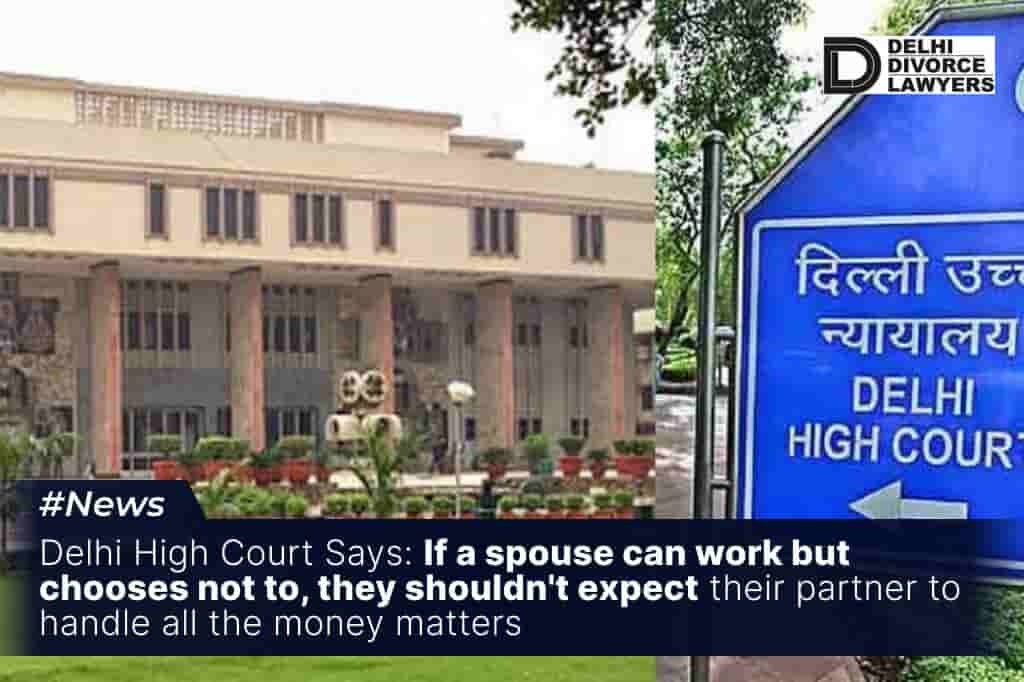The Court also noted that the provision for maintenance during the pendency of proceedings under the Hindu Marriage Act (HMA) is gender neutral, meaning that both wife or husband can seek relief under it.
In a convened session on Tuesday, the Delhi High Court enunciated a seminal legal principle positing that a spouse possessing employable skills, yet voluntarily embracing unemployment absent sufficient justification, is precluded from unilaterally imposing financial obligations, notably in the form of maintenance, upon the other spouse. The judicial pronouncement, delivered by Justices V Kameswar Rao and Anoop Kumar Mendiratta, ensued from a meticulous scrutiny and subsequent adjustment of a previously granted maintenance award by a family court to the wife. The contextual underpinning of this adjudication is embedded within the broader purview of an extant divorce proceeding instigated by the husband.
“The spouse having a reasonable capacity of earning but who chooses to remain unemployed and idle without any sufficient explanation or indicating sincere efforts to gain employment should not be permitted to saddle the other party with one sided responsibility of meeting out the expenses,” the bench said.
The court emphatically underscored that the calculation of maintenance is not confined to rigid mathematical precision but, rather, should be oriented towards providing sustenance to a spouse devoid of independent financial means throughout the pendency of legal proceedings. Furthermore, the court underscored the gender-neutral applicability inherent in the maintenance provisions delineated in Sections 24 and 25 of the Hindu Marriage Act (HMA), elucidating the respective entitlements, responsibilities, and obligations within the marital union.
In the specific matter adjudicated by the High Court, the appellant (husband) contested an order mandating a monthly disbursement of ₹30,000 to the respondent (wife) during the ongoing divorce proceedings. The legal representative for the appellant argued that a prior order under the Protection of Women from Domestic Violence Act had stipulated a monthly payment of ₹21,000, subsequently escalated to ₹30,000 within the purview of HMA proceedings. Citing financial constraints, the appellant disclosed that the respondent, a graduate of Delhi University, had hitherto earned ₹25,000 in her capacity as a hospital receptionist.
The court was apprised of the appellant’s obligations towards supporting siblings, a brother, and elderly parents, as well as repaying a loan incurred for his brother’s matrimonial expenses. Conversely, the respondent’s counsel contended that she did not receive remuneration in her current hospital engagement, characterizing her role as that of a voluntary social worker.
Following a comprehensive evaluation of submissions and financial records, the court ascertained that the appellant’s net income, post-deductions and recoveries, amounted to ₹56,492. Furthermore, the court observed a dearth of elucidation by the Family Court regarding the rationale for the augmented maintenance award to the respondent during the divorce proceedings.
In consideration of the appellant’s protracted familial obligations antedating the legal dispute, coupled with the absence of evidentiary substantiation indicating that the financial deductions from his income were exclusively attributable to the litigation, the court rendered its decision.

